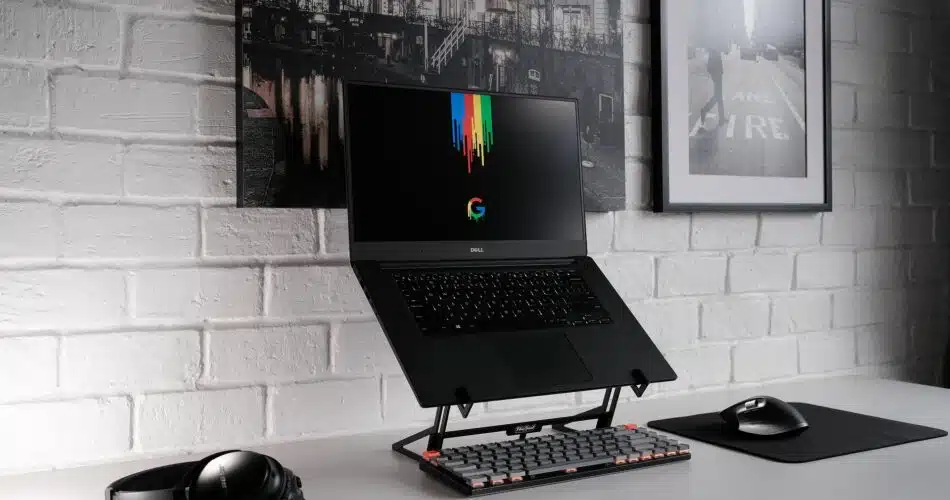Google Ads offers plenty of tools to get your business in front of the right audience, but when it comes to search campaigns, there are two main approaches: Dynamic Search Ads (DSAs) and Standard Search Ads.
Both have their strengths, and choosing the right one can make the difference between a campaign that prints money and one that burns through your budget with little to show for it.
So, which is right for you? Let’s break it down.
What Are Standard Search Ads?
Standard Search Ads (also called manual search ads) are what most people think of when they hear “Google Ads.” You create a set of keywords, write your ad copy, and choose landing pages manually.
How They Work:
- You select keywords that you want your ads to show for.
- You write multiple ad variations with headlines, descriptions, and display URLs.
- You choose landing pages where users will be sent after clicking your ad.
- Google matches your ad to searches based on the keywords you’ve selected.
Pros of Standard Search Ads:
✅ Full control – You pick your keywords, ad copy, and landing pages.
✅ More precise targeting – If you know your best-performing keywords, you can optimise bids accordingly.
✅ Better for niche businesses – If your products or services are specific, manually selecting keywords prevents irrelevant traffic.
Cons of Standard Search Ads:
❌ Time-consuming – Requires keyword research, ongoing bid management, and A/B testing.
❌ Risk of missing opportunities – If you don’t include certain keywords, you won’t show up for them.
❌ Ad fatigue – Writing fresh, engaging copy for every ad group can be a challenge.
What Are Dynamic Search Ads (DSAs)?
Dynamic Search Ads (DSAs) are a semi-automated way to run search campaigns. Instead of manually choosing keywords and writing headlines, Google’s AI scans your website and automatically generates ads based on your content.
How They Work:
- Google crawls your website and determines which pages are relevant to users’ search queries.
- Google dynamically generates ad headlines based on a user’s search and the content on your site.
- You write the descriptions, but the headlines and URLs are auto-generated.
- Google matches the best landing page from your website to the search query.
Pros of Dynamic Search Ads:
✅ Covers gaps in keyword lists – Google finds opportunities you might miss with manual keyword targeting.
✅ Time-saving – No need to manage keywords or manually update ad copy.
✅ Scales well – Ideal for businesses with large websites or frequently changing inventory.
✅ Automatically adapts – If new products or services get added to your site, DSAs will automatically include them.
Cons of Dynamic Search Ads:
❌ Less control – Google decides which pages to target, which can sometimes lead to irrelevant matches.
❌ Headline unpredictability – Since Google generates the headlines, they might not always be perfect.
❌ Potential for wasted spend – If not properly managed, DSAs can match to irrelevant searches, leading to low conversion rates.
Key Differences Between DSAs & Standard Search Ads
| Feature | Standard Search Ads | Dynamic Search Ads (DSAs) |
| Keyword Targeting | You manually select keywords | Google auto-matches searches to your website |
| Ad Headlines | You write them manually | Google generates them dynamically |
| Landing Pages | You choose the landing pages | Google selects the best page from your site |
| Best For | Businesses with a clear set of keywords | Large websites, eCommerce, and businesses with changing content |
| Control | High control over keywords and ads | Less control, relies on Google’s AI |
| Time Investment | High – requires ongoing optimisation | Low – Google does most of the work |
| Scalability | Limited – requires manual expansion | High – Google can find new opportunities automatically |
Which One is Right for You?
Use Standard Search Ads If:
✔️ You want full control over keywords, bids, and ad copy.
✔️ You have a well-defined set of keywords that perform well.
✔️ You run a local business, niche service, or highly specific industry (e.g., legal services, medical practices, or B2B software).
✔️ You have limited ad spend and need to ensure every click is highly relevant.
💡 Example: A small accounting firm targeting “tax accountant Manchester” would benefit more from a Standard Search Ad campaign to ensure their budget goes only toward relevant, high-intent searches.
Use Dynamic Search Ads If:
✔️ You have a large website with many products or services.
✔️ You frequently add or update products and need Google to adjust automatically.
✔️ You want to discover new keyword opportunities that you might have missed.
✔️ You’re running eCommerce, travel, or job listing sites, where new pages are constantly added.
💡 Example: An online clothing retailer with thousands of products and constantly changing stock would benefit from DSAs, as Google will automatically create relevant ads for new arrivals without manual updates.
How to Use DSAs and Standard Search Ads Together for Maximum Results
Many businesses see the best results by combining both types of campaigns. Here’s how:
✅ 1. Use Standard Search Ads for High-Intent Keywords
- Set up a manual search campaign for your most valuable, high-converting keywords.
- Focus on keywords that drive sales or leads consistently.
✅ 2. Use DSAs to Capture Additional Traffic & Discover New Keywords
- Run a separate DSA campaign to pick up searches you may have missed.
- Exclude your exact match keywords from the DSA campaign to avoid duplication.
- Monitor the Search Terms Report to find high-performing queries from your DSAs, then add them as keywords to your Standard Search Ads for better control.
✅ 3. Use Negative Keywords to Control DSAs
- DSAs can sometimes match to irrelevant searches, so be proactive about adding negative keywords.
- Example: If you sell high-end furniture, you might want to exclude searches for “cheap” or “DIY”.
Which One Wins?
There’s no one-size-fits-all answer—the best approach depends on your business type, budget, and goals.
📌 If you want control and precision → Go for Standard Search Ads.
📌 If you want automation and scalability → Try Dynamic Search Ads.
📌 For the best of both worlds → Use them together strategically.
At RS Digital, we help businesses get the most out of their Google Ads campaigns, whether through carefully optimised Standard Search Ads or smartly managed DSAs.
If you’re ready to stop wasting budget and start seeing real results, get in touch today—we’ll help you build an ad strategy that actually converts.
Contact us today through www.RSDigital.co.uk enquiry form or call 01282 452096.
Frequently Asked Questions (FAQs)
System: content, while Standard Search Ads rely on pre-written ad copy and selected keywords. DSAs are ideal for covering broad search intent, but they require a well-optimised website. Standard ads give you more control over messaging but can miss opportunities if keywords are too limited. At RS Digital, we help businesses strike the right balance. Our PPC management ensures your Dynamic Search Ads work alongside Standard Ads, maximising reach and conversion rates. Whether you need structured keyword campaigns or automated ad coverage, our Google Partner team creates strategies tailored to your budget and goals.
automatically create ads for related searches in the area. This ensures your business stays visible across local markets without you needing to guess every keyword. However, success depends on how well your website is structured and optimised. RS Digital offers complete PPC and SEO packages, combining technical website optimisation with smart ad campaign setups. This means your local ads not only reach the right audience but also send them to a page designed to convert.




